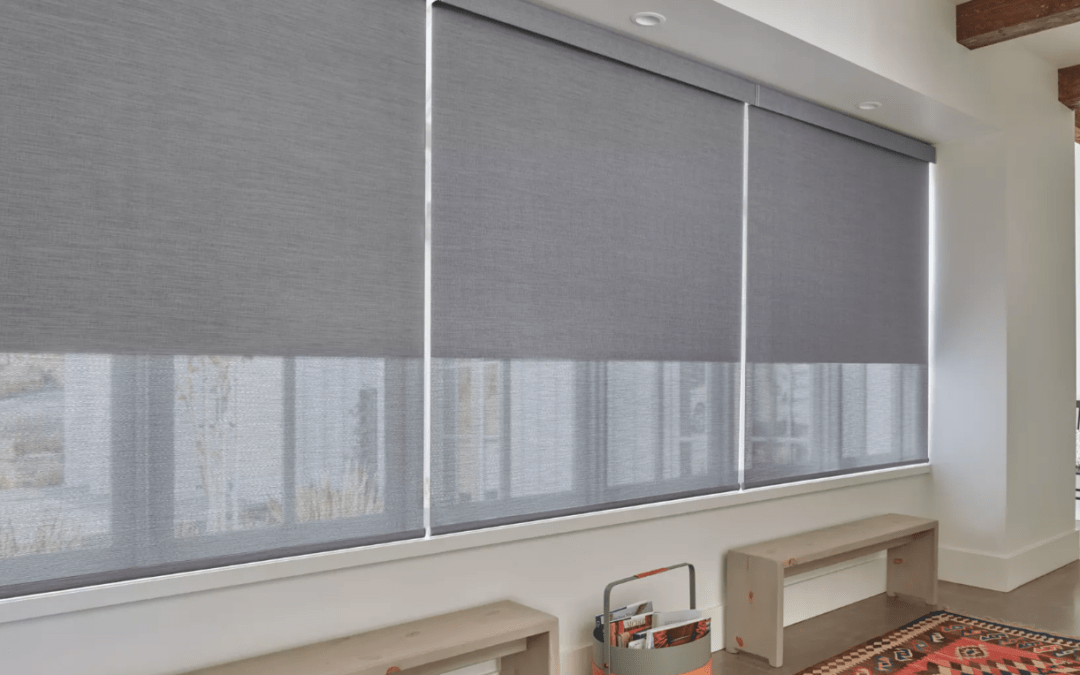Selecting the right window treatments is more than just a matter of aesthetic appeal; it’s a crucial decision that impacts the functionality and ambiance of your space. The choice between blinds vs curtains vs shades is one many homeowners and business owners grapple with, each option offering unique benefits and challenges. Let us help you decide which is right for you.
Blinds vs Curtains vs Shades
How do you choose? Each option presents a unique set of features, advantages, and considerations, making the choice between blinds vs curtains vs shades more than just a matter of taste. This comparison is crucial for homeowners and business owners striving to create an environment that not only reflects their style but also meets their practical needs. From the sleek operation and clean lines of blinds to the warmth and versatility of curtains, and the modern simplicity of shades, understanding the differences between these choices is the first step in transforming your space.
Blinds
Blinds consist of slats or vanes that can tilt, offering precise control over light and privacy. Available in materials like wood, faux wood, aluminum, and vinyl, blinds are versatile enough to fit various decor styles.
Advantages:
- Adjustable Light Control: The ability to tilt the slats offers unparalleled control over light and privacy.
- Ease of Cleaning: Their design and materials make blinds relatively easy to keep clean.
Disadvantages:
- Aesthetic Appeal: Some styles of blinds might not offer the warmth or elegance that curtains do.
Featured Hunter Douglas Blinds:
- Parkland® Wood Blinds: Crafted from rich hardwood for a classic, refined look, perfect for adding a touch of elegance.
- EverWood® Blinds: Offers the warmth of wood but with the durability of synthetic materials, ideal for high-humidity areas.
Shades
Shades are made from a single piece of fabric that rolls or folds up, offering a streamlined look. They range from sheer to blackout, catering to different light control and privacy needs.
Advantages:
- Modern Look: Shades provide a clean, contemporary appearance.
- Good Light Control: Offers a range from sheer to blackout, giving you control over the ambiance.
Disadvantages:
- Mechanical Failures: Some styles may have parts that wear out or fail over time.
Featured Hunter Douglas Shades:
- Duette® Honeycomb Shades: Known for their energy efficiency, these shades add a layer of insulation for your windows.
- Designer Roller Shades: Combine the ease of use of traditional roller shades with hundreds of fabric choices, ranging from sheer to opaque.
Curtains
Curtains are fabric panels that come in various opacities, adding color, texture, and warmth to any room. They are a popular choice for their decorative and functional versatility.
Benefits:
- Versatility in Decor: Curtains can complement any decor style, from modern to traditional.
- Better Insulation: Fabric panels can help keep rooms warmer in winter and cooler in summer.
Drawbacks:
- Maintenance: Curtains may require more upkeep, including washing and dry cleaning.
- Cost: Custom designs can be more expensive.
Things to Consider When Choosing Window Treatments
- Light Control and Privacy: Blinds offer precise control, curtains provide layered options, and shades offer a balance between the two.
- Aesthetic and Decor: Your choice should complement the room’s existing decor and color scheme.
- Insulation and Energy Efficiency: Consider the thermal properties of each treatment to improve your space’s energy efficiency.
- Ease of Operation and Maintenance: Evaluate how much effort you’re willing to put into the maintenance and operation of your window treatments.
How to Choose the Right Option for Your Space
When choosing the right window treatment for your space, it’s crucial to start with the room’s purpose. A bedroom, for instance, might benefit from the privacy and light-blocking capabilities of shades or heavy curtains, ensuring a restful night’s sleep. In contrast, a living room or office may require adjustable light control for different times of the day, making blinds a practical choice.
It’s also important to consider the window’s size and location. Large, south-facing windows may need treatments that offer UV protection to prevent furniture from fading, while smaller windows might look best with minimalistic shades or blinds to avoid overwhelming the space.
Your decor style is equally important; modern and minimalist interiors can be complemented by the sleek lines of shades, whereas traditional spaces may benefit from the texture and warmth of curtains. Feel free to mix and match treatments to meet both functional needs and aesthetic desires. Layering sheer shades beneath heavy curtains can provide versatility in light control and privacy, while combining different materials and textures can add depth and interest to your decor.
Unveil the Potential of Your Windows
Don’t let the complexity of choosing the right window treatments overshadow the potential to transform your space. Schedule a consultation with a Solutioneer today to discuss your options. Together, we’ll find the window treatment solution that not only meets your functional needs but also elevates your space to new heights.

